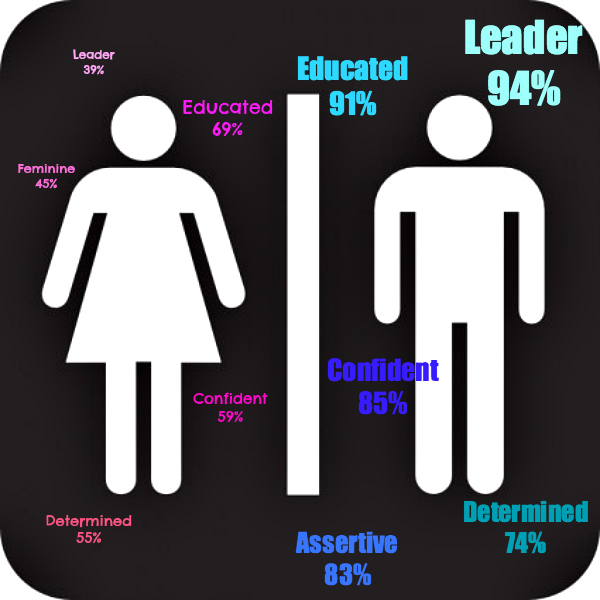With the presidential election two years away, the network anchors are already starting to babble about potential candidates — including, of course, former U.S. Secretary of State and now author Hillary Clinton. I was talking with a liberal friend, who — though she believes women are fully capable of holding office — said she thought that female politicians today (like Hillary) aren’t “feminine” enough but instead aggressive (which is masculine). She thinks they’d be more appealing (and therefore get more done) if they upped the feminine factor. And I can’t help but wonder: Are Americans really ready for a female leader?
A recent study published in Political Psychology would have you think we’re not. Researchers asked college kids to assign adjectives that they believed the average American associated with several groups of people, including male and female politicians. They found that on average, Americans find women leaders lag behind men in a bunch of important leadership descriptors: leader (94 percent for men vs. just 39 percent for women), educated (91 percent versus 69 percent), confident (85 percent versus 59 percent). And the kicker: men leaders, apparently, are also more determined than female ones — by a margin of 74 percent to 55 percent. This being in a society where, though women represent over 50 percent of all professional workers, they account for just 14.2 percent of executive leaders and 4.6 percent of Fortune 500 CEOs. But hey, even with the cards stacked against you, as a woman you still aren’t even as determined as a man if you’ve succeeded.
The sad part is, female leaders — especially politicians — would probably be unsurprised at these statistics, given to the comments they’re used to hearing. Just take conservatives’ billboard of Texas democratic senator and pro-choice proponent Wendy Davis’s as a life-sized “abortion Barbie.” And, of course, 63-year-old gasbag Rush Limbaugh declaring Hillary “too old” to run for office in 2016 at the age of 68 (despite the fact that Ronald Reagan was two years older than that when he ran and was president until the ripe old age of 78). No matter how qualified she may be for office, Hillary may be doomed if no one “wants to stare at an aging woman,” as Limbaugh put it.
There is a glimmer of hope, though, I realized after talking with my mom — a lifelong Republican and Obama hater — about her views on Hillary. I was expecting to hear the usual vitriol against Democrats. I was wrong: she told me that, in fact, she liked Hillary (the first time in my life I’d ever heard her associate that word with a Democratic politician). She said she thought Hillary was incredibly smart, talented and experienced, and would do a great job as a leader of our country. And, if the Republican candidates are any of the current nutjobs, she said she’d likely vote for her.
Indeed, she may not be alone: a May 2013 Emily’s List poll of 800 likely 2016 U.S. voters found that 90 percent would consider voting for a female president and three in four believe one would be good for our country.
So while only one in five congressional and senatorial seats are currently held by women, maybe things are about to change. Women are 50 percent of all voters, and I don’t think (or hope) most are afraid to “watch another woman age.” I’m not necessarily a Hillary fan — I’m not even sure I’d vote for her if she does run. But I hope if she does win, she uses her opportunity in office to make positive change for the country — and, in so doing, helps change a few minds about the leadership abilities and qualities of women in charge.

